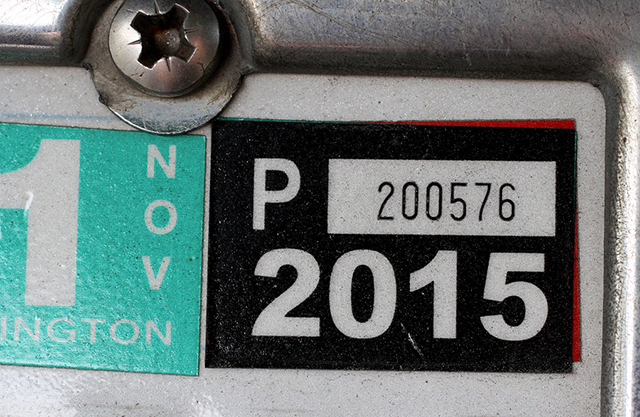Last fall, 556,252 people voted against the Sound Transit 3 measure. But to their displeasure, no doubt, nearly 100,000 more people voted for it.
The vote should have been a decisive end to the debate. Unfortunately, state Republicans are intent on relitigating the matter, and have spent considerable time this legislative session proposing bills that, to various extents, will hamstring the regional transit agency. Some of the measures have been outright hostile to Sound Transit’s very existence. For example, one measure proposed by Senators Dino Rossi and Steve O’Ban would allow municipalities to unilaterally opt their residents out of paying Sound Transit taxes, which would all but ensure a collapse of the agency’s taxing authority.
That bill was never taken seriously, nor should it have been. But it’s an important waypoint to keep in mind when considering other efforts being put forth by the same senators in Olympia. That’s because while these remaining bills may have more modest aims and (arguably) more reasonable rationales, they are at their roots a part of the same anti-ST3 agenda that would unnecessarily put into peril a mass transit system that our region badly needs—and strongly supports.
Primary among these is a bill that would change how Sound Transit calculates car tabs. Seizing on the fact that Sound Transit is using an outdated car assessment method that typically inflates the value of newer vehicles, Republicans have brought forward a bill that would require Sound Transit to use the Kelley Blue Book value of cars instead. Republican leaders clearly think they have a winning issue with the car tabs. The Leadership Institute, an alliance of business interests and GOP lawmakers, has launched an astroturf-y online campaign called “Lower My Car Tabs” to drum up support for the bill, and Sound Transit has been called everything from greedy to criminal for the way it calculates vehicle values.
That’s a little much. While it’s regrettable that the car tab issue didn’t get a full airing before the vote, the fact of the matter is that critics are overselling what kind of tax relief drivers would get if they went with the Republican plan. It’s true that car tabs have gone up significantly since ST3 went into place. But this is not, for the most part, due to how much Sound Transit thinks your rig is worth. Rather, the voter-approved tax plan included a large hike in car tab rates, from .3 percent to 1.1 percent. Although the way that car value is calculated may have been poorly understood, the fact that car taxes would rise under ST3 was plain to any voter who was paying attention.
The Republican bill that’s now before the legislature would not get rid of this hike, and the car-tab sticker shock that’s driving the effort would not go away. For example, the owner of a 2016 Toyota Camry was paying about $79 a year in Sound Transit taxes prior to ST3 passing. Now, that driver is paying $275. Under the Republican plan, the car’s tab would still be about $200 a year. And that’s on the high end. For nearly 60 percent of all cars in the region, the Sound Transit tab tax is less than $100, and would not be greatly impacted by the GOP plan.
Meanwhile, any changes to the tax code have big impacts, especially when spread out across a region with 2.5 million registered vehicles. Transit officials estimate the Republican bill would cost it $6 billion in tax revenue. Such a hit to the tax plan would deliver a serious blow to Sound Transit’s ability to deliver light rail on schedule to Ballard, West Seattle, Everett, Tacoma, and Issaquah. In other words, by tweaking some fine print that voters may have overlooked, Republicans would be putting a plan that voters very clearly understood—and approved—at serious risk.
And that seems to be the real aim behind this and similar efforts: to generate political heat by partially relitigating ST3. It’s noteworthy that the loudest voices in the car-tab flap have not been people who voted for ST3 and now have buyer’s remorse (though we are sure those people exist and are formulating angry letters as they read this). Instead, they are voices that opposed ST3 in the first place, before anyone was worrying about how much Sound Transit thought a Toyota Camry was worth. This includes the Seattle Times editorial board, Senate Republicans, and—lord help us—Tim Eyman. It’s an opportunistic attack on a plan they didn’t like to begin with.
This isn’t to say that those who opposed ST3 last fall are now disqualified from watchdogging its performance. Government agencies only benefit from the scrutiny of the public they serve. Sadly, the fixes that Republicans are proposing to Sound Transit’s exaggerated problems have little to do with public service.
editiorial@seattleweekly.com






